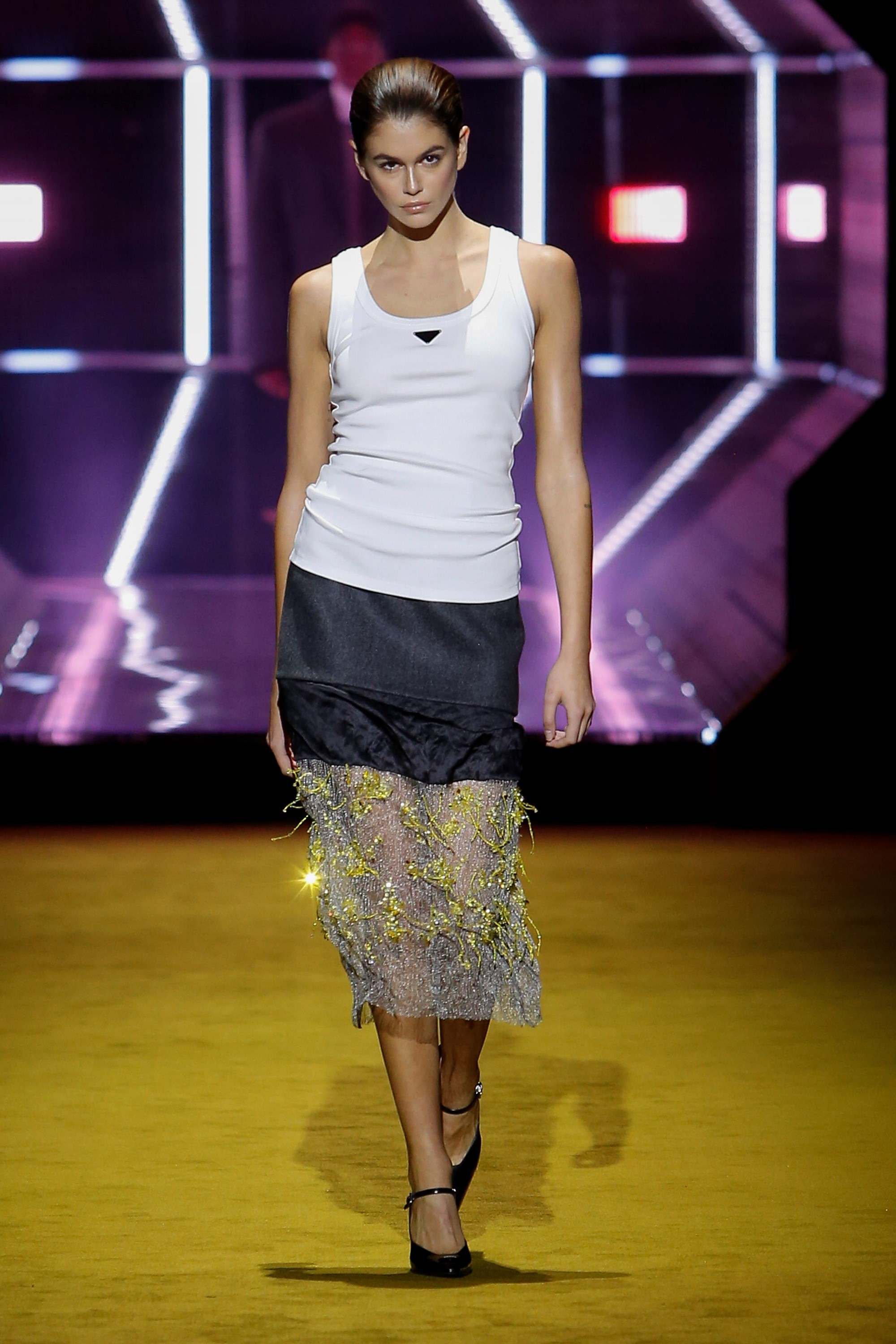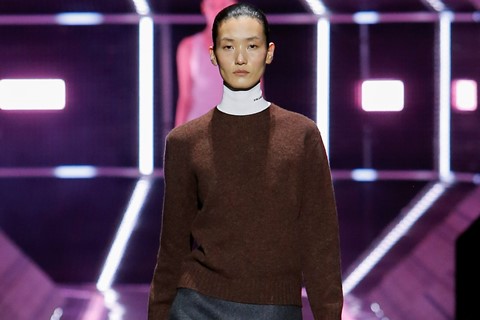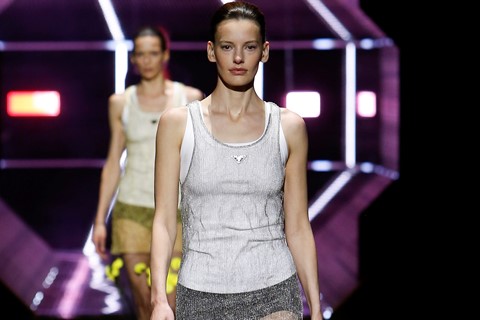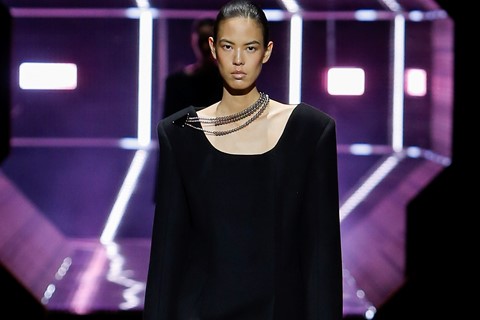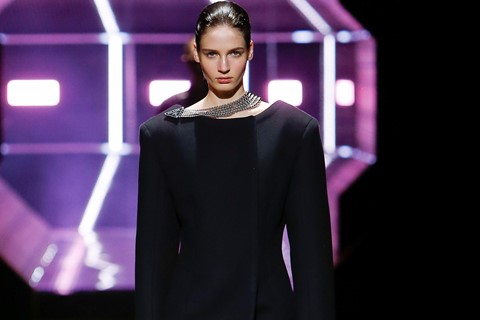History is a living, breathing thing – that’s something emphasised again and again in fashion, quoting from its own past to reactivate ideas for the present. Miuccia Prada and Raf Simons explored the idea last season, in a show that traced the lineage of fashion’s past through clothes created for today. Trains became everyday items – many were worn at their Autumn/Winter 2022 show. And, for the forthcoming season, they fittingly chose to continue this excavation of history. Only, this time, it included Prada’s own.
It could be as direct as a recreated sequence of Prada’s geometric prints, 1970s via 1990s, inspired by retro formica and unveiled for Autumn/Winter 1996 – here, a trio of sweaters reiterated those patterns. But mostly it was subtle, gentle, slightly covert – a band of feathers, a strip of embroidery, a ladylike handbag, clutched in a fist. Remembrances of Prada past. Even last season’s miniskirts got a rethink, forming the top of skirts comprised of different embroideries and fabrics.
“There are never direct recreations, but there is a reflection of something you know, a language of Prada,” Raf Simons said after the show. “And those moments have helped define our idea of beauty today, which we are now redefining.” “Tradition is about humanity – connections between people, passing down knowledge. A human history,” added Miuccia Prada. “These ideas interested us – to look at how and why things had been created in certain ways. But there is only a trace, a memory. It’s not retro, at all.”
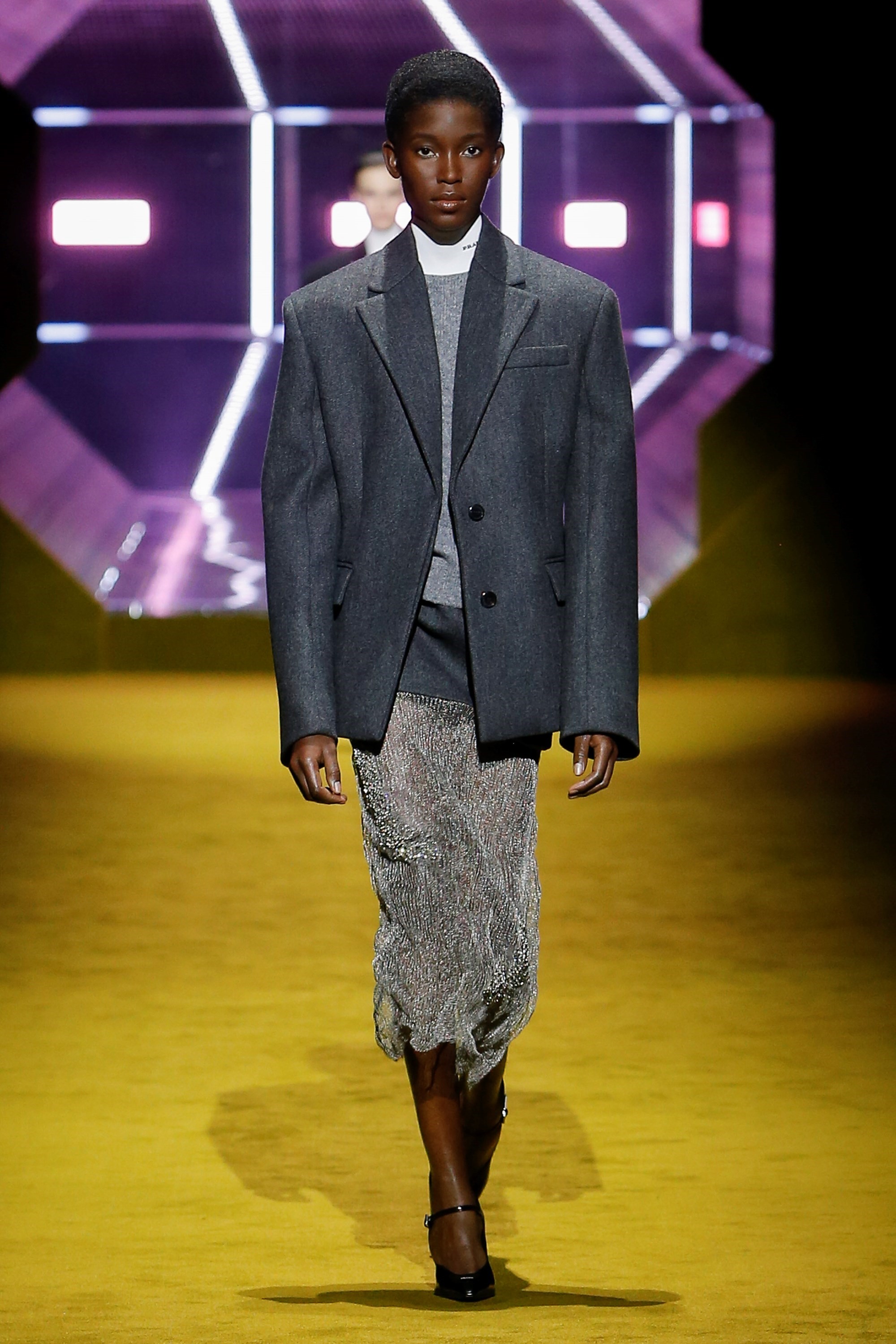
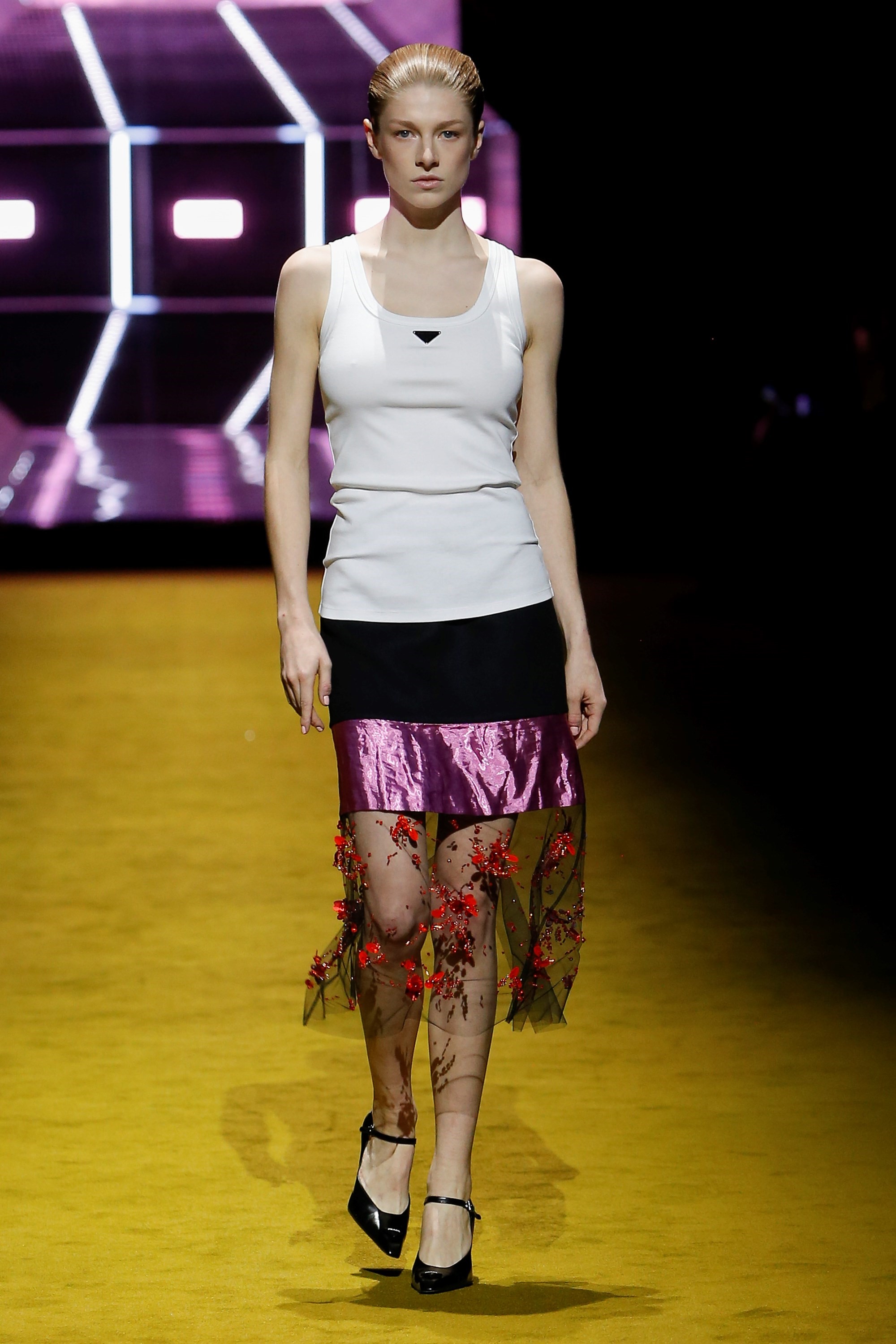
Indeed, despite the throwbacks to traditional pieces of dress – full-skirted suits, sculpted black dresses, vast bomber-jackets crusted with embroideries or parkas trimmed with shearling or feathers that wound up resembling formal opera coats – the collection was a dynamic, modern exploration of Prada’s ideology. Those black dresses, for instance, borrowed their internal construction from tailoring, giving pieces a new dynamic with the body, moving with a different grace. The banded skirts could pretend to be short with layers of transparent mesh sheathing the legs from thigh down; or, perhaps, could give the impression of a solid hem magically floating, suspended from a barely-there slither of net. I always remember Miuccia Prada telling me she liked to disturb, and the status quo here was often rattled – including Prada’s own aesthetic language, its colours and quintessential embroideries, which were here referenced but – bar one crystal-trimmed chiffon skirt – never directly recreated. It wasn’t the actuality of Prada but the idea, like hastily-glimpsed fragments of the past, recreated from memory rather than resurrected piecemeal.
That’s interesting in and of itself, given the rabid popularity of vintage and fashion house archival re-editions. Last season, Prada proposed a handbag from 1995 within its show – it still looked great today. Indeed, if they hadn’t told you it was older than most of the models carrying it, you would never have asked. But this time, although pieces echoed Prada’s history, none told the same story. That’s because, despite their deep respect and admiration for history, neither Prada nor Simons want to rest on it. “In taking from the past we translate – the beauty, quality of tradition, even of couture,” Simons said. “This is always something Prada has done.”
The past for Prada is also not about objects, it’s about people. That’s an ideology Prada and Simons share, in their respective work – a fascination with humanity. Miuccia Prada once told me that, when she quoted retro or vintage inspirations, it wasn’t about the style but was about connecting with past lives, with people’s experiences. And her assertion reframed Raf Simons’ love of youth, which again is about human experience – about growing up, a moment many remember with nostalgia, the power of our own personal histories. How many times do people talk about reliving their youth? “This collection is about the history of women, the history of people, not the history of fashion,” Miuccia Prada asserted. And in focusing on people, it found its true power – and, indeed, to borrow from Prada superfan Marc Jacobs, its ‘Prada-ness’. The collection was titled ‘An Ideology of Prada’ – and that’s exactly what it laid out, on the surface of its clothes and – more importantly – inside the heads of its creators.
